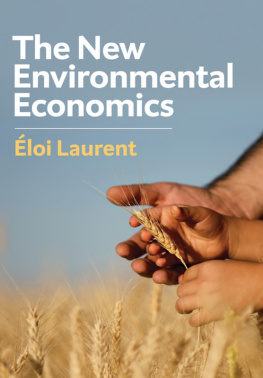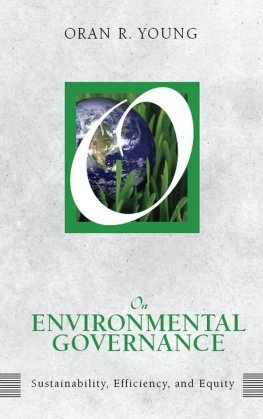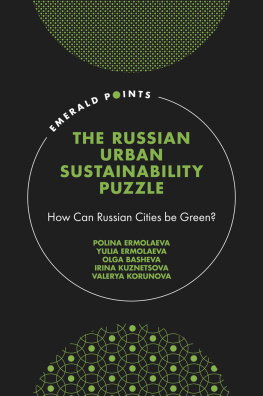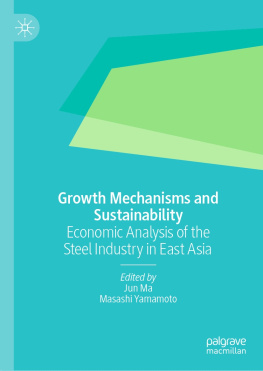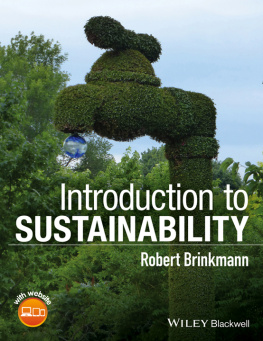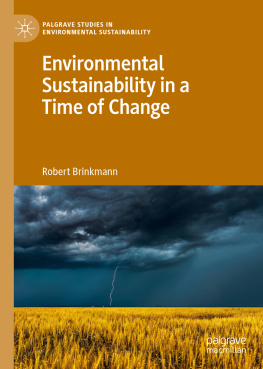
Dedication
For Sylvie, for Lila, for Jonas, with everlasting love
The New Environmental Economics
Sustainability and Justice
loi Laurent
polity
Copyright page
Copyright loi Laurent 2020
The right of loi Laurent to be identified as Author of this Work has been asserted in accordance with the UK Copyright, Designs and Patents Act 1988
First published in 2020 by Polity Press
Polity Press
65 Bridge Street
Cambridge CB2 1UR, UK
Polity Press
101 Station Landing
Suite 300
Medford, MA 02155, USA
All rights reserved. Except for the quotation of short passages for the purpose of criticism and review, no part of this publication may be reproduced, stored in a retrieval system or transmitted, in any form or by any means, electronic, mechanical, photocopying, recording or otherwise, without the prior permission of the publisher
ISBN-13: 978-1-5095-3380-0 (hardback)
ISBN-13: 978-1-5095-3381-7 (paperback)
A catalogue record for this book is available from the British Library
Library of Congress Cataloging-in-Publication Data
Names: Laurent, Eloi, author.
Title: The new environmental economics : sustainability and justice / Eloi Laurent.
Description: Cambridge, UK ; Medford, MA : Polity Press, 2019. | Includes bibliographical references and index.
Identifiers: LCCN 2019017448 (print) | LCCN 2019021750 (ebook) | ISBN 9781509533831 (Epub) | ISBN 9781509533800 (hardback) | ISBN 9781509533817 (pbk.)
Subjects: LCSH: Environmental economics. | Sustainable development.
Classification: LCC HD75.6 (ebook) | LCC HD75.6 .L3785 2019 (print) | DDC 333.7--dc23
LC record available at https://lccn.loc.gov/2019017448
Typeset in 10.5 on 13pt Swift Neue
by Fakenham Prepress Solutions, Fakenham, Norfolk, NR21 8NL
Printed and bound in Great Britain by CPI Group (UK) Ltd, Croydon
The publisher has used its best endeavours to ensure that the URLs for external websites referred to in this book are correct and active at the time of going to press. However, the publisher has no responsibility for the websites and can make no guarantee that a site will remain live or that the content is or will remain appropriate.
Every effort has been made to trace all copyright holders, but if any have been overlooked the publisher will be pleased to include any necessary credits in any subsequent reprint or edition.
For further information on Polity, visit our website: politybooks.com
Figures
Graphs
Three ages of human development
Oil prices, 20082018
Renewable internal fresh-water resources per capita
European Union emissions of GHG in production and consumption
Globalization in the last 50 years
Percentage of population residing in urban areas by country, 19502050
Boxes
The population (on-going) problem
John Muir: Preservation and healing
The rules of the game of environmental cooperation
The top 20 of the Toxic 100
The ecological debt
The Cochabamba Declarations
Air (ine)quality
Environmental justice before the law
Kenneth Boulding
The monetary cost of air pollution
Biodiversity, human development, and political freedom
Fuel poverty in the UK
Stanley Jevons and the rebound effect
Four types of decoupling
Taxing and subsidizing carbon
How to mitigate climate change: A policy toolbox
Energy transition in France: The ngaWatt scenarios
Three lessons from the Chinese growth experiment
The Sveriges Riksbank Prize in Economic Sciences 2018
Rousseau vs. Voltaire after the Lisbon earthquake of 1755
The CETA and environmental policy
The double penalty of urban sprawl: The case of France
Urban well-being: The case of Paris
Urban success stories
Figures
The many values of natural resources
Human well-being and the biosphere: The self-destructive vicious circle
Human well-being and the biosphere: The virtuous circle of sustainability
Three horizons for humanity: Well-being, resilience, and sustainability
The three linkages of sustainable development
Social-ecological trade-offs and synergies
Tables
Social discount rate options
Social cost of CO2, 20102050
World fisheries and aquaculture
Evolution of global forest, 19902015
Global and regional per capita food consumption, 19642015
Energy use, 19802014
The share of country groups in global material consumption in 2010
Physical and monetary trade of goods for the EU-28
Import dependency for the EU-28
Waste treatment in the OECD, 2013
Material flow accounting for Western industrial Europe, 19502010
Absolute decoupling between GDP and CO2 in 21 countries
The global energy mix in 1973 and 2015
Renewable energy competitiveness
Global emissions of CO2 in 2016
Emissions of carbon dioxide in 2015, country ranking, and shares
A simple model of fair and efficient climate justice
Environmental contribution to some diseases
Environmental deaths in different regions of the world
Environmentally related tax revenue for some OECD countries, 19942016
Internal and external water footprint (2011)
Goods transportation, 20002016
The global urban population, 2018 and 2030
Priority actions for a low carbon building strategy
Urban population in the EU-28 exposed to air pollutant concentrations (20122014)
Introduction: Economics for the twenty-first century
Are we thriving or are we doomed? That is the question. In our early twenty-first century, two radically different views regarding the fate of humanity on Planet Earth co-exist.
The first one insists on the remarkable prowess of humankind: Once fearful creatures deprived of almost any significant natural advantages in a hostile environment, we have managed in a matter of a few thousand years and even more in the last two centuries to become Kings of Nature, Masters of the Biosphere, Rulers of Life. Driven by the power of social cooperation, humanitys journey toward prosperity in all corners of the world is truly impressive.
What is more, our collective success has allowed us to change for the better our biological and social self: We have become taller, stronger, healthier, smarter, freer, and, most probably, happier. To take just one striking example of our exponential progress, in the last fifty years alone, human health has been improved more than in the seven million years or so of human presence on Earth. Seen from this perspective, the future of humanity calls for reasonable optimism, if not outright cheerfulness. With the right combination of innovation and incentives, no insurmountable obstacle will stand in the way of our ingenuity.
The other view is decidedly grimmer. It argues that humanity is, to put it mildly, deeply disappointing: In a matter of a century, even more so since 1950, we have managed to substantially destroy our own habitat, the most hospitable planet for us in the Universe, harming our own well-being and that of our successors for shortsighted gains. To take just one illustration of how fast we are degrading the biosphere, cumulative man-made carbon dioxide emissions causing climate change in the last fifty years alone represent 70% of all recorded emissions (since 1750). Homo sapiens sapiens, the one who knows he knows, appears to be losing the great race between his intelligence and his avidity.
Next page
